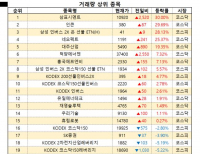Managerial Accounting Summary
· Activity – Some measure of output (e.g. number of units produced or amount of a service provided)
· Variable costs – costs that automatically change with activity, within a relevant range
· Fixed costs – costs that do not vary with activity, within a relevant range
· Relevant range – range of activity over which average variable costs and total fixed costs are constant
· Step or step-fixed costs – costs that are fixed over a range of output levels
· Discretionary fixed costs – Costs that may be fixed at many different levels, depending upon managerial discretion (e.g. advertising)
· Mixed or semi-variable costs – costs that have both a fixed and variable component (i.e. a nonzero intercept and a nonzero slope)
· Period costs – costs of the firm that are expensed immediately
· Product costs – Costs of the firm that are inventories and expensed only when the associated product is sold
· Manufacturing costs – Costs which relate to a firm’s production operations; anything to do with the factory (treated as product costs)
o Direct manufacturing costs – costs that can be traced to a particular unit, which are sufficiently large to justify tracking them:
§ Direct labor
§ Direct materials
o Indirect manufacturing costs (also called overhead) – all of the manufacturing costs other than the direct manufacturing costs
§ Indirect materials
§ Indirect labor
§ Other overhead, including depreciation and insurance
· Non-manufacturing costs – all costs that are not manufacturing costs (treated as period costs); costs required to obtain customer orders and to provide the customer with the finished product.
o Sales & marketing costs
o Storage & distribution costs
o Administration costs
o R&D costs
· Conversion costs – the cost of converting raw materials into finished products: DL + manufacturing overhead
· Prime costs – DL + DM
The Cost-Volume-Profit (CVP) model
· Variable costs = DM + DL + VOH + Sales commissions
· Net income before taxes:
· Transfer Pricing
<Supplying Division>
Net cash outflows for supplying division if must supply goods
Marginal cost of supplying the good
Direct cost of making the item plus opportunity cost
← Transfer Price ←
<Receiving Division>
Net cash inflows for receiving / buying division if receive goods
Marginal benefit of receiving the good
Product Costing Systems
· Absorption costing – all manufacturing costs (fixed & variable) assigned to a product
· Direct / variable costing – only variable manufacturing costs assigned to a product
Measuring costs
· Actual costing – assign actual costs incurred during the period to products
· Normal costing – assign the actual DM and DL, but estimate the OH
· Standard costing – assign all costs based on estimates
Production process
· Job order costing – used for production in batches or lots
· Process costing – used for continuous production
※출처를 밝히면 자유롭게 인용 가능합니다.

